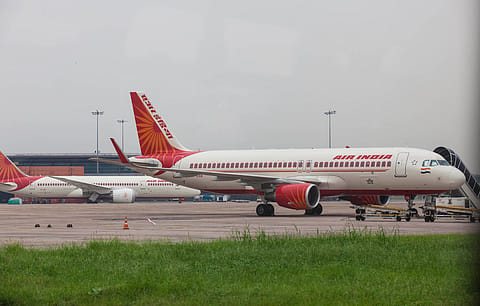No more priority status for Air India in international flights
Aviation regulator DGCA removed the clause that granted preferential status to the now-privatised Air India in bilateral international traffic rights.

The aviation regulator has revoked preferential status accorded to Air India regarding permission to operate scheduled international flights. The Directorate General of Civil Aviation (DGCA), in a circular dated April 19, 2022, superseded the 2017 circular that granted priority status to the now-privatised carrier.
Tata Group took over Air India on January 27 after it emerged as the successful bidder for the debt-laden airline on October 8 last year. The preferential access to bilateral international traffic rights was granted to Air India as it was the state-owned national carrier back then. Now privatised, the airline will no longer be able to enjoy this privilege.
“Due consideration shall be given to the operational plans submitted by Air India Limited before allocation of the traffic rights to the other eligible applicants,” DGCA had noted in clause 3.6 of the 2017 circular.
In the revised circular, the regulator removed this clause related to international flights.
“The central government may at its discretion grant or deny allocation of traffic rights to any air transport undertaking having regard to its preparedness to undertake such operations, viability of the operations on a particular route, overall interests of the civil aviation sector etc.,” the new circular reads.
Two countries have to sign a “bilateral air services agreement” for their airlines to run international operations between them. This agreement decides how many flights or seats will be allowed to fly from one country to the other during a week. Once this agreement is negotiated and signed, each country is free to allocate the bilateral rights to airlines operating within its jurisdiction.
Airlines with a valid air operator’s certificate for scheduled air transport services are eligible for such bilateral rights. The eligibility criteria also calls for passenger airlines to deploy 20 aircraft or 20% of their total capacity in terms of average number of seats on all departures put together, whichever is higher, for domestic flights.
Recommended Stories
Even after getting the bilateral rights, an airline must have slots at airports in both the countries party to the bilateral agreement in order to start flight operations. These slots are allocated by a committee that consists of the civil aviation ministry and DGCA officials, airport operators and airlines, among others. A slot is a date and time at which an airline can land at or take off from an airport.
After 68 years, the Tata Group managed to bring Air India back into its fold after the central government managed to complete its ambitious disinvestment plan to sell the loss-making airline. The Tata group controls Air India through its subsidiary Talace. The conglomerate also owns Air India Express and 50% stake in ground handling unit Air India SATS.
The Tata group is yet to appoint a chief executive officer for Air India. Ilker Ayci, a former chairman of Turkish Airlines, had turned down the offer for the post last month amid a probe by the ministry of home affairs over his alleged links with Al-Qaeda.
However, Tata Group chairman N. Chandrasekaran had rejigged the Air India board earlier this month, bringing in senior executives who have worked with other companies of the salt-to-software conglomerate.
(INR CR)